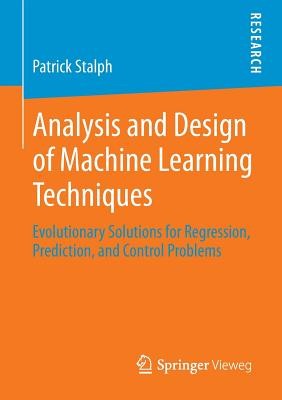
- We will send in 10–14 business days.
- Author: Patrick Stalph
- Publisher: Springer Vieweg
- Year: 2014
- Pages: 155
- ISBN-10: 3658049367
- ISBN-13: 9783658049362
- Format: 14.8 x 21 x 1 cm, minkšti viršeliai
- Language: English
- SAVE -10% with code: EXTRA
Analysis and Design of Machine Learning Techniques (e-book) (used book) | bookbook.eu
Reviews
Description
Manipulating or grasping objects seems like a trivial task for humans, as these are motor skills of everyday life. Nevertheless, motor skills are not easy to learn for humans and this is also an active research topic in robotics. However, most solutions are optimized for industrial applications and, thus, few are plausible explanations for human learning. The fundamental challenge, that motivates Patrick Stalph, originates from the cognitive science: How do humans learn their motor skills? The author makes a connection between robotics and cognitive sciences by analyzing motor skill learning using implementations that could be found in the human brain - at least to some extent. Therefore three suitable machine learning algorithms are selected - algorithms that are plausible from a cognitive viewpoint and feasible for the roboticist. The power and scalability of those algorithms is evaluated in theoretical simulations and more realistic scenarios with the iCub humanoid robot. Convincing results confirm the applicability of the approach, while the biological plausibility is discussed in retrospect.
EXTRA 10 % discount with code: EXTRA
The promotion ends in 21d.22:39:57
The discount code is valid when purchasing from 10 €. Discounts do not stack.
- Author: Patrick Stalph
- Publisher: Springer Vieweg
- Year: 2014
- Pages: 155
- ISBN-10: 3658049367
- ISBN-13: 9783658049362
- Format: 14.8 x 21 x 1 cm, minkšti viršeliai
- Language: English English
Manipulating or grasping objects seems like a trivial task for humans, as these are motor skills of everyday life. Nevertheless, motor skills are not easy to learn for humans and this is also an active research topic in robotics. However, most solutions are optimized for industrial applications and, thus, few are plausible explanations for human learning. The fundamental challenge, that motivates Patrick Stalph, originates from the cognitive science: How do humans learn their motor skills? The author makes a connection between robotics and cognitive sciences by analyzing motor skill learning using implementations that could be found in the human brain - at least to some extent. Therefore three suitable machine learning algorithms are selected - algorithms that are plausible from a cognitive viewpoint and feasible for the roboticist. The power and scalability of those algorithms is evaluated in theoretical simulations and more realistic scenarios with the iCub humanoid robot. Convincing results confirm the applicability of the approach, while the biological plausibility is discussed in retrospect.


Reviews